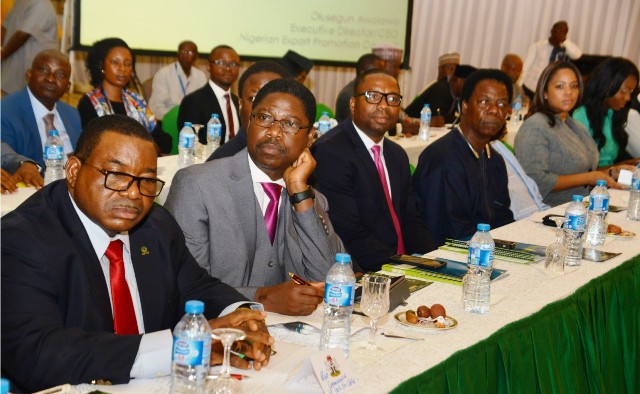Business
HOS Hails Loan Scheme For Civil Servants

Head of Civil Service of the Federation, Mrs Winifred Oyo-Ita has commended the home renovation loan scheme provided for civil servants in the country.
Oyo-Ita told newsmen at the sensitisation programme for Federal Public Servants on Home Renovation Loan Scheme in Abuja, Monday that the scheme was a very good initiative for Nigerians.
The scheme is being provided by the Federal Mortgage Bank of Nigeria (FMBN), in partnership with the Federal Government Staff Housing Loans Board (FGSHLB).
According to Oyo-Ita,” It is a very good initiative, this is one time when you can see two government agencies coming together for the good of the civil service.
“The FMBN are the custodians of the National Housing Fund (NHF) and for so long civil servants have cried out that they contribute two and half of their salary but they have nothing to show for it.
“And on the other hand, the FGSHLB has been struggling with paucity of funds to meet the demands of civil servants for housing loans and renovation loans and so on.
“In the past, this two government agencies were working on parallel lines but now, under the present administration of President Mohammadu Buhari, they have come together with a vision”.
She acknowledged the number of people that already benefited from the scheme, adding that:” This is a success story for the government.’’
Dr Hannatu Adamu-Fika, the Executive Secretary, FGSHLB, expressed delight at the commencement of the scheme.
“You know, anything that a government does to catch on the welfare of civil servants should be commendable because civil servants are the engine room of government.
“If civil servants do not work, the government is seen as not functioning, so today’s occasion is very pleasing to anybody who supports the successes of the present government.”
She expressed optimism that more people would continue to benefit from the scheme as time progressed.
She said”as you have heard, it’s not a onetime thing, this is the fifth tranche of the renovation loan that is being distributed; we have even started to work on the sixth, seventh and eight.
“It is a continuous process and as long as the federal public service exists, this partnership will continue to flow for the benefit of Nigerian public servant”.
Mr Ahmed Dangiwa, the Managing Director, FMBN, said the bank was working at ensuring that everyone contributed to the NHF.
Dangiwa said there were lots of individual organisations who thought they were not supposed to contribute into the funds.
He said the bank had explored all avenues to ensure that they contributed to the NHF.
“We have explored the public sector, both informal and formal sectors.’’
He said the bank was also partnering with other stakeholders to ensure the provision of funds that would help the bank function properly.
He said there was a lot of housing deficit in the country, but the bank was partnering with the developers, through the Real Estate Developers Association of Nigeria ((REDAN), to surmount the problem.
Dangiwa reiterated that the target of the bank was to ensure affordable housing loans to low and medium income earners in the country.
He said,” we have a lot of estate that have been funded by the FMBN; they are on ground right now and we are trying to see that we get off takers who will take over these houses.
“And at the same time we are partnering with cooperative societies so they can forward their applications for cooperative housing loan scheme to us for funding.
Business
Nigeria’s ETF correction deepens as STANBICETF30, VETGRIF30 see 50% decline in a week

Business
BOI Introduces Business Clinic

Business
Dangote signs $400 mln equipment deal with China’s XCMG to speed up refinery expansion

-
Maritime2 days ago
Nigeria To Pilot Regional Fishing Vessels Register In Gulf Of Guinea —Oyetola
-
Maritime2 days ago
Customs Declares War Against Narcotics Baron At Idiroko Border
-

 Sports2 days ago
Sports2 days agoGombe-Gara Rejects Chelle $130,000 monthly salary
-
Maritime2 days ago
NIMASA,NAF Boost Unmanned Aerial Surveillance For Maritime Security
-
Maritime2 days ago
NIWA Collaborates ICPC TO Strengthen Integrity, Revenue
-

 Sports2 days ago
Sports2 days agoTEAM RIVERS SET TO WIN 4×400 ” MORROW” …Wins Triple jump Silver
-

 Sports2 days ago
Sports2 days agoNPFL Drops To 91st In Global League Rankings
-

 Sports2 days ago
Sports2 days agoNSC eyes international hosting rights

